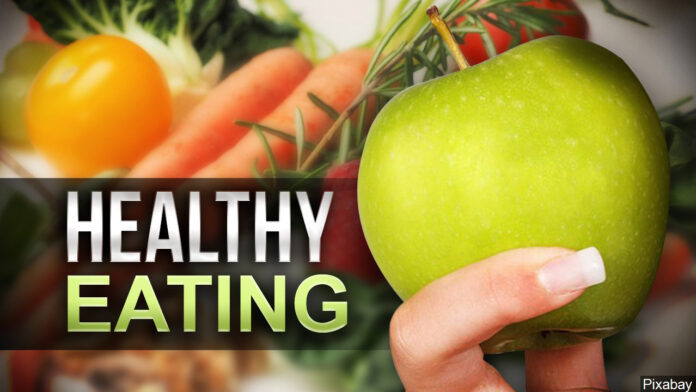With busy schedules often packed full of parties, get-togethers and social events, finding time to eat right and choose healthy food options during the holidays can be a challenge.
But with a little planning and some smart thinking, Aurora Ybarra, RN and Director of the Medical and Surgical Weight Loss Program at Valley Baptist Medical Center-Harlingen, said it can be possible to enjoy holiday festivities and reduce stress while keeping weight gain in check.
“There will always be unforeseen situations that arise, but for the most part, go into the season with a plan for everything, including how to enjoy the parties that you are invited to, how to get all of the shopping done in time, or how to get all the goodies made in time,” she said. “A suggestion is to create a calendar with your events and dates that you would like to have things accomplished by marked on the calendar. Each day prior to those dates, write down tasks to do in order to accomplish the goal and hopefully keep from being so stressed about not being ready or having things finished.”
How to manage stress during the holidays is often at the top of many wish lists. Ybarra said that while there are many ways to manage stress, one of the most effective can be through eating a healthy diet containing key vitamins and minerals, including:
Whole Grains – An excellent source of B vitamins which can boost energy and combat the fatigue commonly associated with stress. Foods that contain whole grains include whole-grain breads, breakfast cereals, brown rice, and oatmeal.
Fruits and Vegetables – Eating fruits and vegetables with antioxidants, such as vitamins C and E and beta-carotene can help decrease the production of cell-damaging free radicals. Good sources of vitamin C are bell peppers, broccoli, oranges, strawberries, and cantaloupe. Good sources of vitamin E include spinach, blueberries, and olives. Foods with beta-carotene include sweet potatoes, carrots, kale, and romaine lettuce.
Magnesium – Helps regulate stress hormones. When the body experiences chronic stress, individuals may experience headaches or fatigue. Foods rich in magnesium include spinach, salmon, black beans, and navy beans.
Nuts and Seeds – Nuts and seeds are high in vitamin E, which can help boost the immune system. Vitamin E can be found in almonds and sunflower seeds. Zinc also helps with the immune system and can be found in Brazil nuts, sesame seeds, and pumpkin seeds.
In addition to what you eat, how you eat can be just as important, Ybarra said. Some tips for healthy eating when attending those parties or special events include:
● Avoid skipping meals for the day, trying to “save” up for the party later.
● Eat a light snack before leaving for the party. It is generally not a good idea to arrive at a party hungry. You may be tempted to over-eat.
● Sit or stand far away from the buffet/food table.
● Use the smallest plate available.
● Use the 80/20 rule. Most of your plate (80%) should be vegetables, whole wheat crackers, fruit, protein and nuts. These are high in fiber and can keep you feeling fuller longer which may help you to not overindulge. Allow yourself a little bit (20%) of space for desserts or other goodies.
● Be mindful of what you are eating. It can be easy to mindlessly graze the buffet and be unaware of how many calories you just consumed. Thousands of calories can be consumed at parties through beverages, dips, salty snacks and desserts.
● Keep your hands full. Hold a low-calorie beverage in one hand and a purse or napkin in the other. You may be less tempted to grab and go.
● Choose your beverages wisely. Alcohol is high in calories. Liquors, sweet wines and sweet mixed drinks can contain as many as 450 calories per drink. Your best choice is to stick with water. If you choose to have a drink, select light wines and beers, and use non-alcoholic mixers such as water and diet sodas. Beware of calories in soda, fruit punch and eggnog, especially if it contains alcohol. Limit your intake to one or two alcoholic drinks per occasion. Not only can alcohol stimulate your appetite, but it can also diminish your willpower to stick to healthy eating goals.
● Eat slowly and chew your food thoroughly. Wait at least 15 minutes before going back for a second helping. This gives your body enough time to feel full.
● Offer to bring a dish to ensure that a healthy option is available.
As part of the services offered by the Valley Baptist Medical Center-Harlingen Surgical and Medical Weight Loss Program, there are free patient information seminars at Valley Baptist-Harlingen on the second Monday of each month at 6 p.m. The next seminar is scheduled for Monday, January 13, 2020 at 6 p.m. in the Boggus Education Pavilion (Room 5), located at 2110 Benwood Street.
Both bariatrics programs at Valley Baptist-Harlingen and Valley Baptist-Brownsville are recognized as Comprehensive Centers through the Metabolic and Bariatric Surgery Accreditation and Quality Improvement Program sponsored by the American College of Surgeons.
For more information about medical and surgical weight loss options, please contact Ybarra at (956) 389-6896 or by e-mail at [email protected]; or visit www.ValleyBaptist.net/medical-services/surgical-and-medical-weight-loss.




